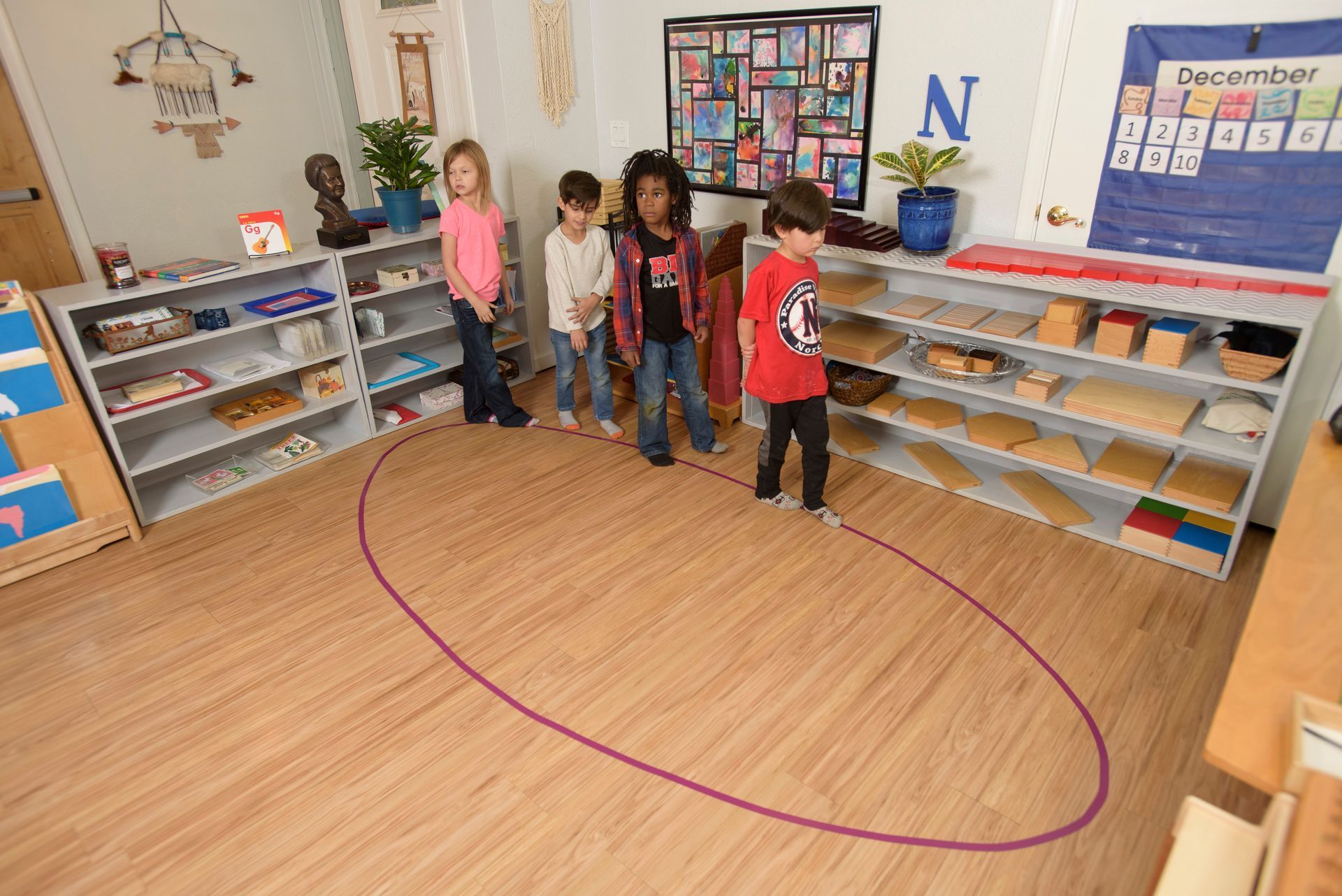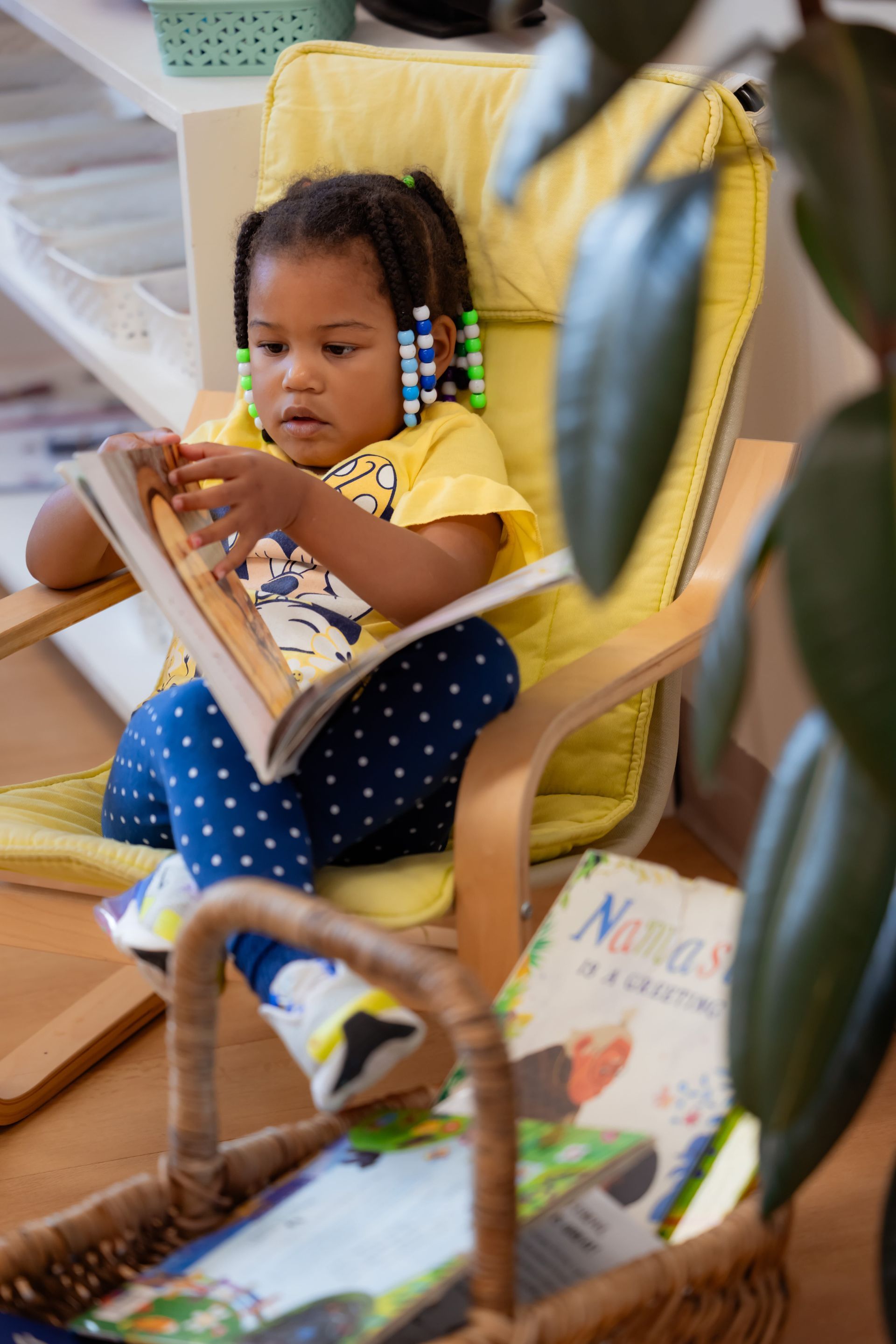Montessori
Montessori FAQ
Here are some of the questions we hear most often about Montessori education.
The number of Montessori schools is growing and key Montessori ideas are being integrated into many public schools and universities. Along with evolving interest and acceptance, there are also questions and misconceptions.
What You Need to Know
-
What is the difference between Montessori and traditional education?
For children six and under, Montessori emphasizes learning through all five senses, not just through listening, watching, or reading. Children in Montessori classes learn at their own, individual pace and according to their own choice of activities from hundreds of possibilities. They are not required to sit and listen to a teacher talk to them as a group, but are engaged in individual or small group activities of their own, with materials that have been introduced to them 1:1 by the teacher who knows what each child is ready to do. Learning is an exciting process of discovery, leading to concentration, motivation, self-discipline, and a love of learning.
Above age six children learn to do independent research, arrange field trips to gather information, interview specialists, create group presentations, drama performances, art exhibits, musical productions, science projects, and so forth. There is no limit to what they create in this kind of intelligently guided freedom. There are no textbooks or adult-directed group lessons or a daily schedule. There is great respect for the choices of the children, but they easily keep up with or surpass what they would be doing in a more traditional setting. There is no wasted time and children enjoy their work and study. The children ask each other for lessons and much of the learning comes from sharing and inspiring each other instead of competing.
-
Why does Montessori have multi-age classrooms?
Multi-age classrooms afford us the luxury of adapting the curriculum to individual children. Children can work at their own pace while remaining in the community with their peers. In addition, the multi-age format allows all older children to be the mentors of the classroom community, even those children who may be shy or quiet.
-
Is Montessori good for children with learning disabilities? What about gifted children?
The Zion School partners with Speech and Behavioral professionals, in the classroom, when students need additional therapies outside the capabilities of the Primary guides.
Montessori is designed to help all children reach their fullest potential at their own unique pace. A classroom whose children have varying abilities is a community in which everyone learns from one another and everyone contributes. Moreover, multi-age grouping allows children to find their own pace without feeling “ahead” or “behind” in relation to peers.
-
Do we have to identify as Christians?
No. We welcome all who recognize and acknowledge the importance of teaching and modeling love, compassion, and grace for our children. We pray, worship, and talk about God, Jesus, and the Holy Spirit. We teach from the Holy Bible. If you are comfortable and/or open to learning about all of these, our community will be a great fit for your family. We welcome with open arms anyone who is comfortable with us using the Holy Bible, whether they consider themselves Christian or not.
-
Isn’t Montessori just a daycare?
No! The Zion School is a school with certified Montessori educators. Our guides have completed a rigorous teaching program along with an in-depth residency.
In general, Montessori schools may be best known for their enriching programs with young children, but the underlying educational method describes programs for young 3 year old students up through high school.
-
If children are free to choose their own work, how do you ensure that they receive a well-rounded education?
Montessori children are free to choose within limits, and have only as much freedom as they can handle with appropriate responsibility. The classroom teacher and assistant ensure that children do not interfere with each other, and that each child is progressing at her appropriate pace in all subjects.
Your child will study both broadly and deeply, covering many subjects not attempted in conventional schools. Because there is not a rigid schedule or prescribed curriculum that the whole class must follow, your child can focus intensely on her self-chosen work, with minimal interruption. At the same time, she will collaborate with the teacher to ensure that her work is challenging and purposeful – and that basic standards are met. In that way, the teacher is in charge of the minimum scope of work – your child is in charge of the maximum.
-
Montessori classrooms don’t look like regular classrooms. Where are the rows of desks? Where does the teacher stand?
The different arrangement of a Montessori classroom mirrors the Montessori method's differences from traditional education. Rather than putting the teacher at the focal point of the class, with children dependent on the adult for information and activity, the classroom shows a literally child-centered approach. Children work at tables or on floor mats where they can spread out their materials, and the teacher circulates about the room, giving lessons or resolving issues as they arise.
-
Since Montessori classrooms emphasize non-competitiveness, how are students adequately prepared for real-life competition later on?
Montessori classrooms emphasize competition with oneself: self-monitoring, self-correction, and a variety of other executive skills aimed at continuous improvement. Students typically become comfortable with their strengths and learn how to address their weaknesses.





